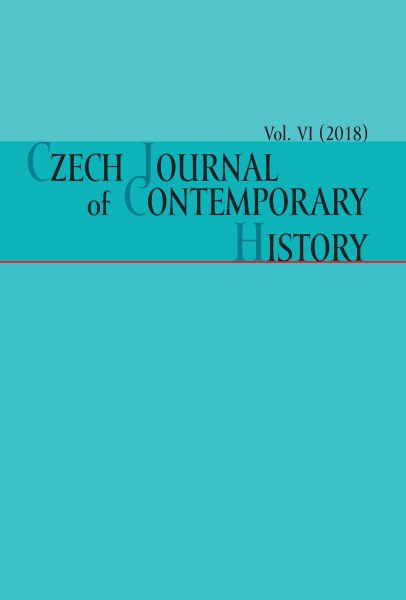“It Was the Poles” or How Emanuel Ringelblum Was Instrumentalized by Expellees in West Germany
“It Was the Poles” or How Emanuel Ringelblum Was Instrumentalized by Expellees in West Germany
On the History of the Book Ghetto Warschau: Tagebücher aus dem Chaos
Author(s): Stephan StachSubject(s): Cold-War History
Published by: AV ČR - Akademie věd České republiky - Ústav pro soudobé dějiny
Keywords: Poland; communism; cold war; Ghetto Warschau
Summary/Abstract: The article investigates how the Holocaust distorted and exploited in Cold War debates on the example of genesis and reception of the book Ghetto Warschau. Tagebücher aus dem Chaos [Warsaw Ghetto: Diaries from Chaos]. The book is a translation of the essay Stosunki polsko-żydowskie w czasie drugiej wojny światowej [Polish-Jewish relations during the Second World War], written by the Jewish historian and creator of the underground archive of the Warsaw Ghetto Emanuel Ringelblum while hiding from the German Occupiers in Warsaw in 1944. Ringelblum addressed his essay to the Polish reader discussing the relation of Christian Poles and Polish Jews under German occupation based on his own experience and the material he had collected. It was originally published in several portions in the Bulletin of the Jewish Historical Institute, an early Holocaust Research Center based in Warsaw. The German translation was based on this publication and published in summer 1967 in a Stuttgart-based publishing house. However, the new title, introduced by its German editors, suggested it was Ringelblum’s diary. Above that the blurb and many footnotes highlighted the role of Poles as perpetrators in the Holocaust, while minimizing that of Germans. As the article shows, the book was prepared by the Göttinger Arbeitskreis ostdeutscher Wissenschaftler [Göttingen Working Group of Eastern German Scholars], a Think Tank with close ties to the German expellee community, campaigning for a revision of the Polish western border. Göttinger Arbeitskries used the book and earlier on excerpts of Ringelblum’s text for a smear-campaign in the West-German expellee press. Through the biased presentation and distorted context of the work these former Ostforschers sought to portrait Poles as eternal anti-Semites and the factual perpetrators of the mass murder of Polish and European Jews following their anti-Polish agenda. Polish nationalist within the ruling Polish United Workers Party in turn exploited the book and the campaign based on it, which coincided with the anti-Semitic campaign in Poland. Though the Institute was not involved in the publication of the German book, the Polish national communists accused it of supporting German revisionism and “Zionists” abroad in their slander of Poland.
Journal: Czech Journal of Contemporary History
- Issue Year: VI/2018
- Issue No: 6
- Page Range: 43-62
- Page Count: 20
- Language: English

